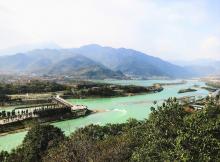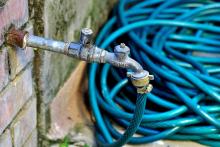5 Trends in Public-Private Partnerships in Water Supply and Sanitation
Gender & Water and Sanitation Projects
Alianza Público-Privada/ Sector de Acueducto y Alcantarillado en Colombia by Beatriz Giraldo
Slides of this presentation
Alianza Público-Privada/ Sector de Acueducto y Alcantarillado en Colombia (ppt)
Video Presentation
Case study of Colombia - Alianza Público-Privada - Sector de Acueducto y Alcantarillado
Partenariat Public-Prive Cas de la Senegalaise des Eaux by Mamadou Dia
Mamadou Dia illustrated the case of Senegal as a model that can be adapted to other countries willing to engage in institutial reform. Mr. Dia, the Chief Executive Officer of the Sénégalaise des Eaux, stated that the water sector is financially self-sustainable and has improved the access for peri-urban areas as well as the quality of service improved.
Water & Sanitation PPP Toolkits
Listed below is a number of toolkits that comprises contracts, leases, affermages, concessions, divestitures relevant to private participation in both water supply and sanitation services, as well an overview of cases around the world.
Toolkit Structuring Private Sector Participation (PSP) Contracts for Small Scale Water Projects:
PPPs by Sector
Just as there are different types of public-private partnerships (PPPs), PPPs also exist in a variety of industry sectors. Each sector offers unique challenges and opportunities for PPPs due to differing legal, regulatory and investment considerations. Find more information about public private partnerships in the following sectors:








